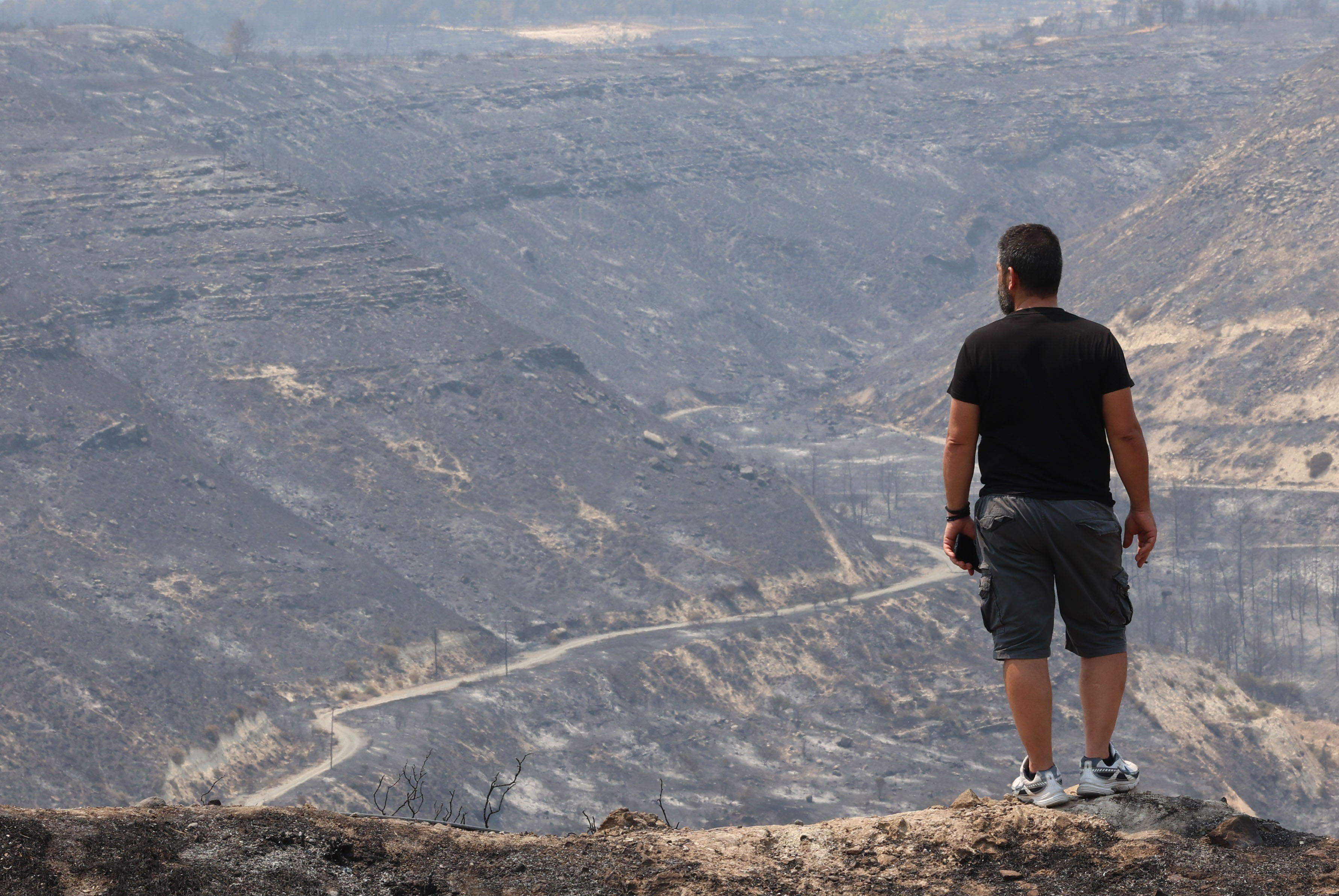By Theodoros Zachariadis
The serious fires of recent days have naturally been addressed by grief over the loss of life, injuries, and destruction, as well as estimates of the economic losses suffered by those affected. In addition, scientists and environmental organisations have pointed to the long-term negative consequences of fires, which are natural phenomena and will always occur, but their impact is greatly exacerbated by human interventions that increase the likelihood of fire, worsen its impact, and often prevent the proper restoration of nature after a disaster.
Among other things, the destruction of forests and other vegetation reduces the protection from erosion and flood provided by forests and crops and leads to a loss of biodiversity that affects the overall balance (e.g., will bees perform their tasks in the burnt areas? will there be habitats for animals and small organisms to live and find natural food?). Such impacts cannot easily be expressed in monetary terms because they do not directly destroy property, but affect the quality of life for all of us indirectly and in the medium term through the quantitative and qualitative deterioration of soil, water, food, and air, as well as the increased likelihood of flooding.
Thus, in contrast to the direct economic losses caused by the fire, which can be specifically estimated (costs for rebuilding or maintaining infrastructure, homes and monuments, compensation for restoring crops and for loss of income from products), the indirect – but very real – environmental damage is overlooked. We mention the environmental benefits of nature’s services in qualitative terms, but we often ignore the economic cost of losing these services because this cost is not directly reflected in accounting books or the state budget.
To my knowledge, there is no estimate of the economic value of forests and ecosystems in Cyprus. However, it is useful to draw on data from other Mediterranean countries. In 2023, the Academy of Athens published a very detailed study on the “Resilience of Greek Forest Ecosystems to Climate Change” – it is easily available online in Greek. If one adapts the data to Cypriot conditions, as we will explain shortly in our study on the cost of climate change in Cyprus, it appears that the value of the services of ecosystems destroyed by fires – which cannot be measured in market terms – ranges between €1,000 and €2,000 per hectare. Yes, there are great uncertainties in such economic estimates, but it is better to have an indication of the likely extent of the damage than to ignore it because it is not recorded in accounting books.
If, as announced by the European Copernicus service, the area affected by the fire was approximately 100 square kilometers, or 10,000 hectares, we conclude that indirect environmental damage could reach 10-20 million Euros. In relation to the tangible damage that will be repaired immediately, is this amount large or small? In any case, it is not negligible.
Since these 10-20 million Euros do not come directly out of the pockets of citizens or the state, where and when will we pay them? We will pay over the next few years, in medical expenses for some of our fellow citizens whose health has been affected, in flood prevention projects that will be needed because of these fires, in increased spending by citizens to go on recreational trips to more remote places that were not affected by the fire, in increased prices or reduced quality of some agricultural or livestock products, etc.
Nature is so complex and consists of so many different but interdependent elements that it is difficult to attribute a future cost to a specific ecosystem loss. However, this does not mean that such damage does not exist. And obviously, prevention is the most appropriate approach; in the case of fires, prevention will involve precautionary measures, land cultivation, controlled grazing, and other measures to be specified by experts. It is impossible to prevent all natural disasters. However, as we will show in the upcoming analysis to be published in a few days, preventive measures to adapt to climate change are at least 3-4 times cheaper than the damage that an uncontrolled climate crisis will cause us. No matter how uncertain such calculations may be, don’t you think it’s worth it?
Theodoros Zachariadis is Professor at the Cyprus Institute.The article is republished from the Blog of the Cyprus Economic Society (https://cypruseconomicsociety.org/blog/blog-posts/)






Click here to change your cookie preferences